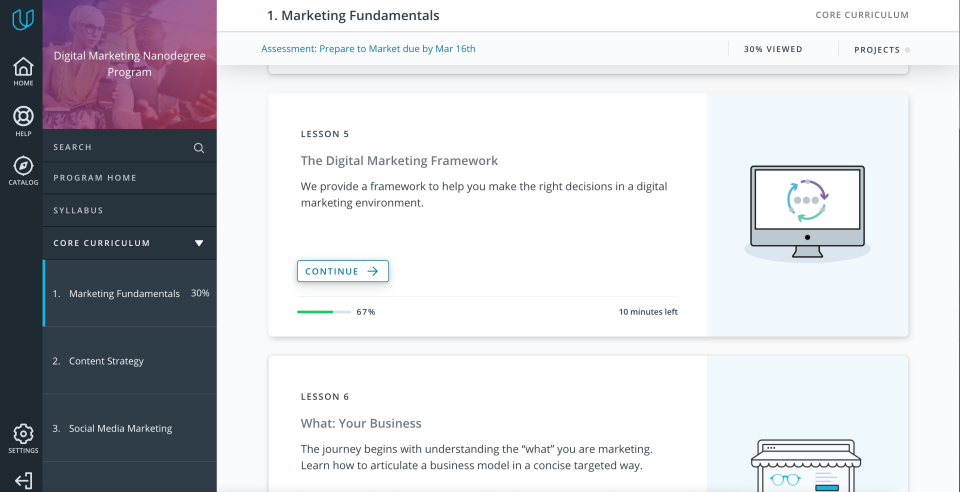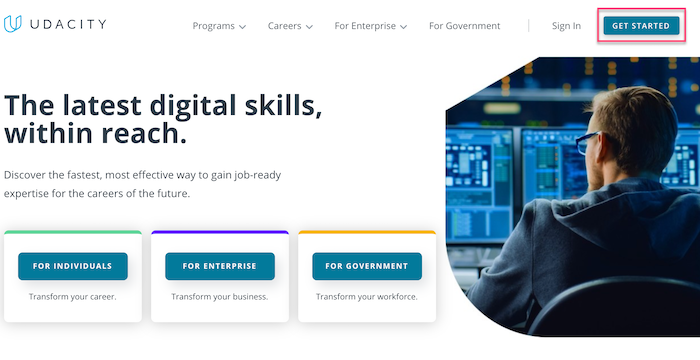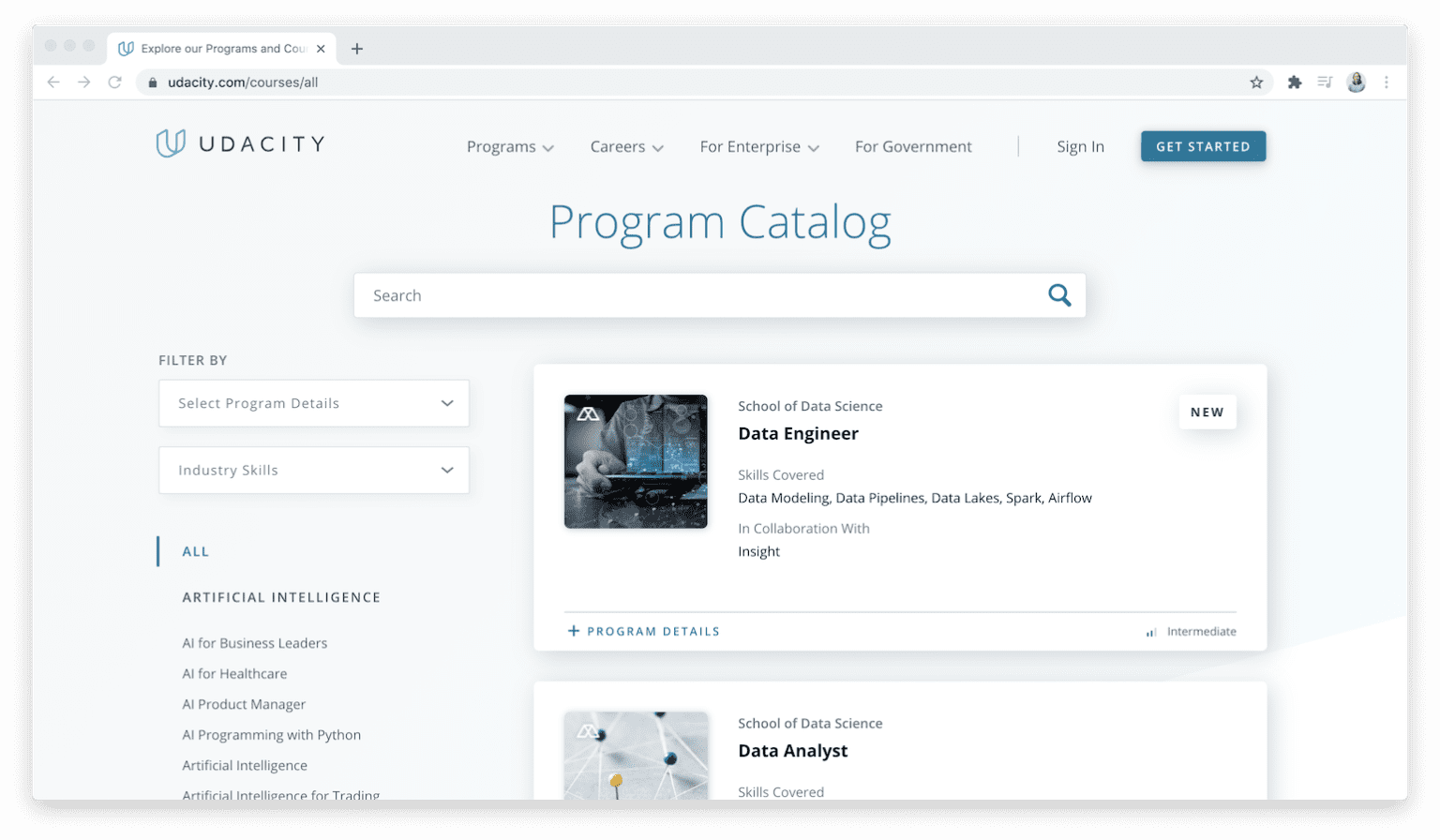Udacity is an online education platform that offers courses and nano degrees focused on various technology-related fields, such as machine learning, artificial intelligence, data science, and web development. Founded in 2012 by Sebastian Thrun, David Stavens, and Mike Sokolsky, Udacity’s primary goal is to provide students with the necessary skills and knowledge to pursue a career in the tech industry.

Different Features of Udacity
Udacity offers several features that make it a popular choice among students. One of these features is the flexibility it provides. With Udacity, students can learn at their own pace and schedule, making it ideal for individuals with work or other commitments. Additionally, Udacity’s courses and nano degrees are designed to be interactive, engaging, and practical. This means that students are not just learning theoretical concepts, but they also get to work on real-world projects to help them build a portfolio that can be used when applying for jobs.

Another feature that sets Udacity apart is its focus on industry-relevant skills. Udacity works with top tech companies such as Google, Amazon, and IBM to develop its courses and nano degrees, ensuring students learn the latest industry-standard skills. This partnership also makes it easier for students to get hired by these companies, as they are more likely to be familiar with the skills and tools used in the industry.

Courses Offered by Udacity
Udacity offers various courses and nano degrees in various technology-related fields. Some of the popular courses include:

Intro to Programming: This course teaches students the basics of programming using Python, one of the most popular programming languages.
Front End Web Developer Nanodegree: This nano degree is designed for individuals who want to become web developers. It covers topics such as HTML, CSS, JavaScript, and React.
Data Analyst Nanodegree: This nano degree teaches students how to use data to make informed business decisions. It covers topics such as data analysis, statistics, and machine learning.
Artificial Intelligence Nanodegree: This nano degree teaches students how to build AI-powered applications. It covers machine learning, deep learning, and natural language processing.
Pros of Udacity:
Industry-relevant skills: As mentioned earlier, Udacity’s courses and nano degrees are designed with top tech companies. Students learn the latest industry-standard skills and are better equipped to enter the job market.

Flexibility: Udacity’s self-paced learning options make it ideal for individuals with busy schedules. Students can learn at their own pace and on their own time, making balancing work, family, and other commitments easier.
Practical approach: Udacity’s courses and nano degrees emphasize practical, hands-on learning. Students work on real-world projects, which helps them build a portfolio of work they can use when applying for jobs.
Experienced instructors: Udacity’s instructors are experts in their fields, many coming from top tech companies. This means that students are learning from people who have real-world experience and can provide valuable insights and guidance.
Affordable pricing: Udacity’s courses and nano degrees are priced competitively, making them accessible to many students.
Cons of Udacity:
Limited course offerings: While Udacity offers a wide range of courses and nano degrees, its selection still needs to be improved compared to other online education platforms.
Lack of interaction: Udacity’s courses and nano degrees are self-paced, and students may interact less with instructors or other students than in traditional classroom settings.
Positive Reviews:
“I completed Udacity’s Front End Web Developer Nanodegree, one of the best decisions I’ve ever made. The curriculum was challenging, but the instructors were incredibly knowledgeable and supportive. I landed a job as a web developer shortly after completing the program.”
“I love Udacity’s self-paced learning options. I was able to complete a course on data analysis while working full-time. The real-world projects were beneficial in building my skills and confidence.”
“The instructors at Udacity are amazing. They are experts in their fields and were always willing to answer my questions and provide feedback on my work.”

“I appreciated the practical approach of Udacity’s courses. I could apply what I learned to real-world situations, which made the learning experience more meaningful.”
“Udacity’s pricing is affordable compared to other online education platforms. I was able to learn new skills without breaking the bank.”
Negative Reviews:
“While I appreciate the self-paced learning options, I wish there were more opportunities for interaction with instructors and other students. It can be lonely and isolating to learn on your own.”
“Udacity’s course offerings are still limited compared to other online education platforms. I wish there were more courses in marketing and design.”
Conclusion:
Overall, Udacity is a great online education platform for individuals wanting to pursue a tech industry career. Its industry-relevant skills, flexibility, practical approach, experienced instructors, and affordable pricing make it a popular choice among students. While its limited course offerings and lack of interaction may be drawbacks, the benefits of Udacity outweigh the cons. If you’re looking to learn new tech skills or advance your career in the tech industry, Udacity is worth considering.








